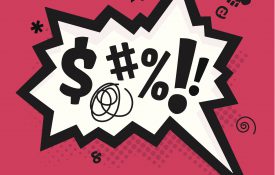-
Are women increasingly at risk of addiction?
The Washington Post: Last year, American novelist Joyce Maynard faced a harsh realization: Her habit of reaching for a glass of wine whenever she felt stressed had crossed the line into an addiction. “It kind of crept up on me,” said Maynard, 63, whose novel about a single mother with a wine dependence, “Under the Influence,” came out in paperback in November. “The way I was drinking is the way a lot of women drink and don’t see it as any kind of problem. And for a lot of them, it may not be a problem. It wasn’t the quantity; it was the space wine occupied in my life. I could tell it was occupying an unhealthy one. I was using it increasingly as a comfort and a reliever of stress.
-
New Research From Psychological Science
Read about the latest research published in Psychological Science: When Perception Trumps Reality: Perceived, Not Objective, Meaning of Primes Drives Stroop Priming Anders Sand and Mats E. Nilsson The researchers investigated whether the perceived meaning of a stimulus, rather than the objective meaning, drives semantic congruency priming. Researchers used a Stroop priming paradigm to present participants with stimuli. A prime word, either the word "blue" or "red," was displayed in gray font for varying amounts of time. The prime was followed by a target stimulus, either a blue or a red rectangle.
-

Well, Son of a Biscuit: Swearing Correlated with Honesty
New research finds a consistent, positive relationship between the use of profane language and honesty.
-
Women Do Like to Compete — Against Themselves
The New York Times: About 10 years ago, when we were both Ph.D. students at Harvard, we were invited to participate in an unofficial and largely secret wrestling tournament organized by a fellow student. The idea was to showcase a handful of competitive wrestling matches between graduate students in different departments to an invitation-only audience. Space and gym mats were rented, a referee and a master of ceremonies were appointed, and monetary bets were placed on individual matches. Each wrestler had his or her own costume, entrance song and fan base. Alcohol flowed freely among the spectators. ...
-
To Navigate a Challenge, Pretend You’re Giving Advice to a Friend
New York Magazine: Rebecca Rusch — a.k.a., the “queen of pain” — is arguably the best adventure athlete alive. She’s won a wide range of world championships, including in whitewater rafting, mountain-biking, and cross-country skiing. She’s also dominated preeminent events in orienteering, a sport in which someone is dropped off in the middle of nowhere, oftentimes in the middle of the night, and must navigate their way back to a specified point. Rusch has even ridden her bike to the top of Mount Kilimanjaro. In other words, she’s an extreme outlier in a small community of extreme outliers. Surely, her body must be in tip-top shape.
-
Seven Steps to Reduce Bias in Hiring
The Wall Street Journal: Why is it that many of the world’s most advanced companies struggle to create diversified workforces, despite spending hundreds of millions of dollars on diversity training and recruitment? Implicit bias may be partly to blame, or the idea that even people with the best of intentions toward diversity can harbor attitudes and beliefs that affect their thoughts, feelings and actions outside of their awareness. Read the whole story: The Wall Street Journal

